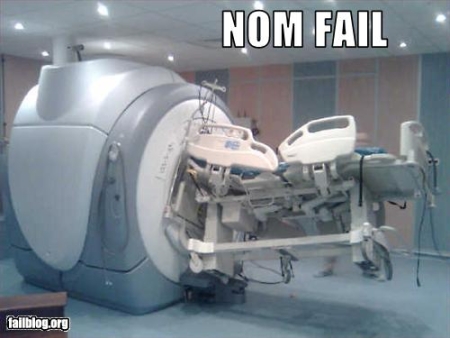September 28th, 2009 by Berci in Better Health Network, News
No Comments »

Obviously not, but it can provide us with some new solutions. That’s why I wanted to share askCH, an interesting project.
AskCH is a one-of-a-kind healthcare tool. Send a healthcare cost or definition question in the proper format, and receive the answer with a link to find detailed information!

Read more »
*This blog post was originally published at ScienceRoll*
September 14th, 2009 by Berci in Better Health Network, News
No Comments »

At this year’s British Science Festival, Tracy Alloway, a psychologist from Stirling University, said the following:
Some examples of what can hurt or harm working memory include things like Twitter. When you’re receiving an endless stream of information when you’re a ‘tweeter’, it’s also very succinct, so there’s no need to process or manipulate that information, it’s not a dialogue unlike something like Facebook where you might be updating your status and so on.

Fortunately, Mark Henderson at Times Online puts things in the right place:
Most people I know who use Twitter see it as an interactive tool for conversing with wide groups, and for drawing like-minded people’s attention to information that might interest them. It’s interactive, full of links, and information-rich. It’s a misconception that the 140-character limit makes depth impossible. In fact, to me, Twitter seems to build social networks just as effectively as Facebook, which Alloway thinks might improve working memory.
Mark is right, and I have a few examples that can explain why I think so:
*This blog post was originally published at ScienceRoll*
September 8th, 2009 by Berci in Better Health Network, Humor
No Comments »

I wanted to write about Healthbase, a new medical search engine, but David Rothman was faster. He found some serious mistakes in the search itself.

Well, the concept to reduce the number of results to a definitive list of categories is a good one. But it leads to some mistakes. First, it searches in databases such as Wikipedia. You cannot find a bigger fan of Wikipedia than me, but still it’s not suitable for such a search engine.
Second, sometimes there are strange things in the results. Only one example below. It seems to suggest that a possible treatment for diabetes is mouse. Of course, it just found articles mentioning mouse models in the research of diabetes treatments, but it cannot deal with the information properly.

So there are a lot of things to do before becoming the ultimate engine. Until then, my suggestion is Scienceroll Search, the first personalized medical search engine:

*This blog post was originally published at ScienceRoll*
September 3rd, 2009 by Berci in Announcements, Better Health Network, Video
No Comments »

*This blog post was originally published at ScienceRoll*
August 28th, 2009 by Berci in Better Health Network, Humor, True Stories
No Comments »

I’ve come across this image on Fail Blog. Magnetic Resonance Imaging + beds with ferromagnetic parts equal…

*This blog post was originally published at ScienceRoll*

















